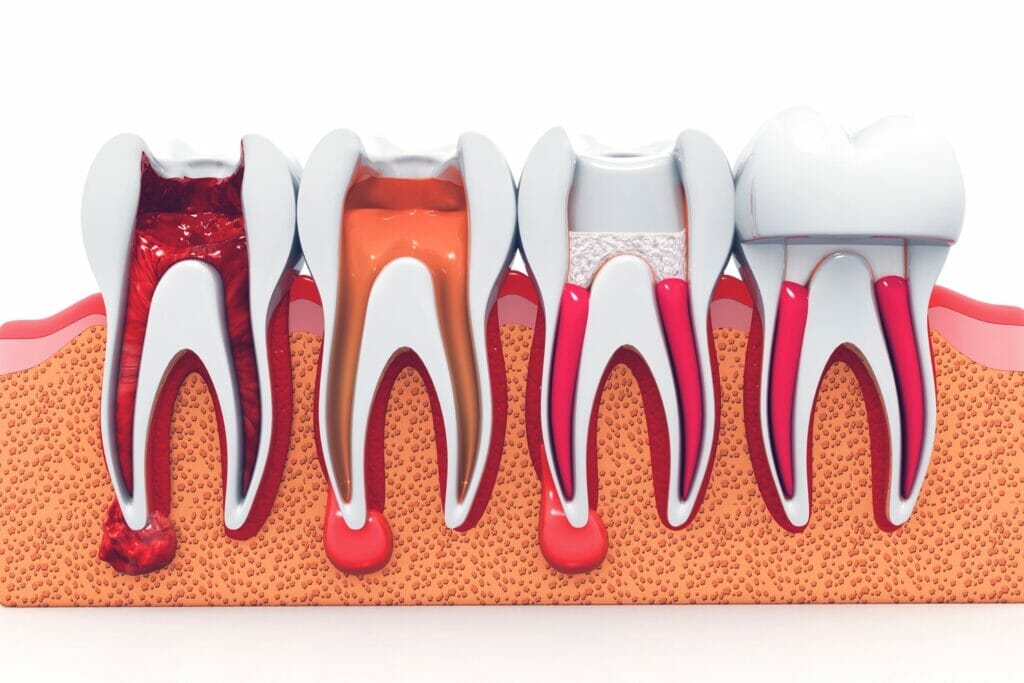
Patients develop beliefs about their teeth, gums, and necessary treatment based on what they hear from their Kitchener Family Dentist, their family, friends and from media. Often, these sources provide them with a decent understanding about teeth and gums. Occasionally, they develop beliefs based on misinformation. Each month, I will address a commonly held misconception so that you have the proper information!
A significant percentage of patients hold this belief. Why? They often cite a failed root canal treatment. Sometimes, they cite a friend who had a root canal treatment fail. The 2 main reasons are a) a re-infection of the treated tooth and b) the tooth breaks in such a way that it cannot be restored.

Re-Infection. There are 2 reasons why this happens. The first is that the nerve removal and subsequent filling are both short of the end of the root. This leaves residual bacteria within the root. The more common reason this happens is a vertical root fracture. When patients don't crown their root canal treated tooth, it develops small cracks over time. These cracks allow bacteria to leak back into the tooth leading to re-infection. So, when a Kitchener Family Dentist tells you "all root-canal-treated teeth should be crowned", it's not a myth.
Non-restorable Tooth Fracture. This happens, again, as a result of not crowning the treated tooth. People will often break the tooth off at the gum line and nothing can be done to salvage it.
Thorough, well done root canal treatments enjoy a high success rate. Studies show success rates between 85-90%. The probability of long-term success is dramatically increased when the recommended dental crown is placed post-operatively. Case selection is important as treatment of teeth with severe cracks or those with large abscesses is likely to enjoy a far lower success rate. It is likely a better course of action to remove such teeth. For proper diagnosis and prognosis, consult your Kitchener Family Dentist before you rule out root canal treatment.
If you would like to discuss the potential need for root canal treatment or gain a 2nd opinion, give us a call at (519) 576-8160 or request a consult with me here.
This article is intended to promote understanding of and knowledge about general oral health topics. It is not intended to be a substitute for professional advice, diagnosis or treatment. Always seek the advice of your Kitchener Dentist or other qualified healthcare provider with any questions you may have regarding a dental condition or treatment.
Services
Routine Dentistry & Tooth Repair
Oral Surgery & Tooth Removal
Prosthetic Dentistry & Tooth Replacement
Protective/Preventive Services
Teeth Whitening
Schedule an Appointment Now
